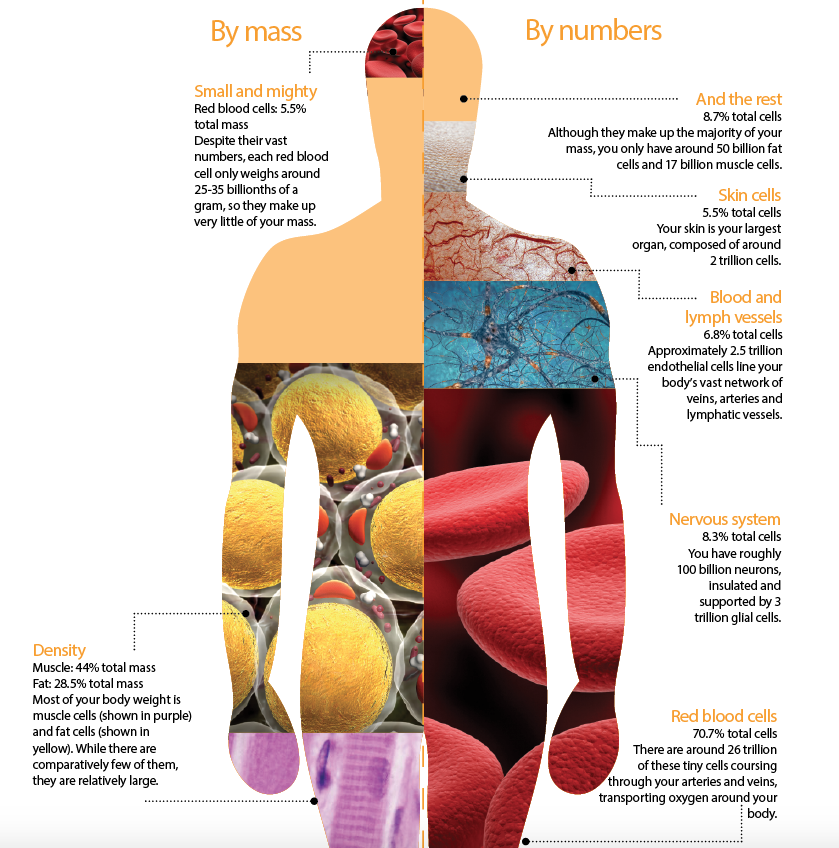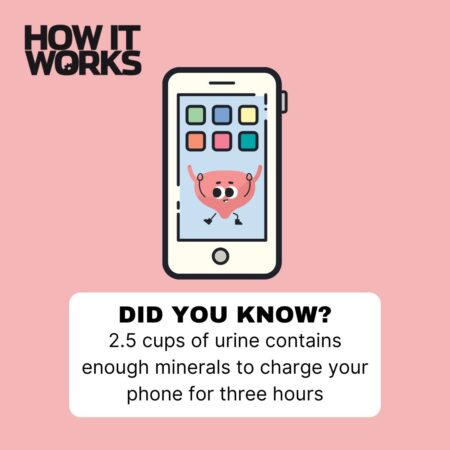The Human Body: How many cells do you have?
by Scott Dutfield · 10/05/2019

Estimating the number of your body’s building blocks is not as straightforward as it seems
By the most recent estimates, the average human is made up of approximately 37.2 trillion cells. To put that unthinkably large number into some perspective, consider that there are ‘only’ 100 billion stars in the entire galaxy. Even if it were feasible to painstakingly isolate every single cell, simply counting to 37.2 trillion would take you over a million years. So how exactly did scientists reach this mind-boggling number?
A team of researchers from Italy, Greece and Spain used a systematic approach: they considered different cell types individually. They gathered as much information as possible from scientific research papers to find the total number of cells in the various organs and systems of an average person, and added up these results to get the titanic total of 37.2 trillion.
Counting the number of cells in a human being may seem like a pointless exercise, but this information is valuable for a range of applications. For example, accurate cell counts can improve the precision of computer models of the body. This could help scientists to virtually map diseases and try out potential treatments. Comparing a patient’s cell count of a particular organ to that of the average human may also help doctors to diagnose diseases
This article was originally published in How It Works issue 89, written by Jackie Snowdon
For more science and technology articles, pick up the latest copy of How It Works from all good retailers or from our website now. If you have a tablet or smartphone, you can also download the digital version onto your iOS or Android device. To make sure you never miss an issue of How It Works magazine, subscribe today!





